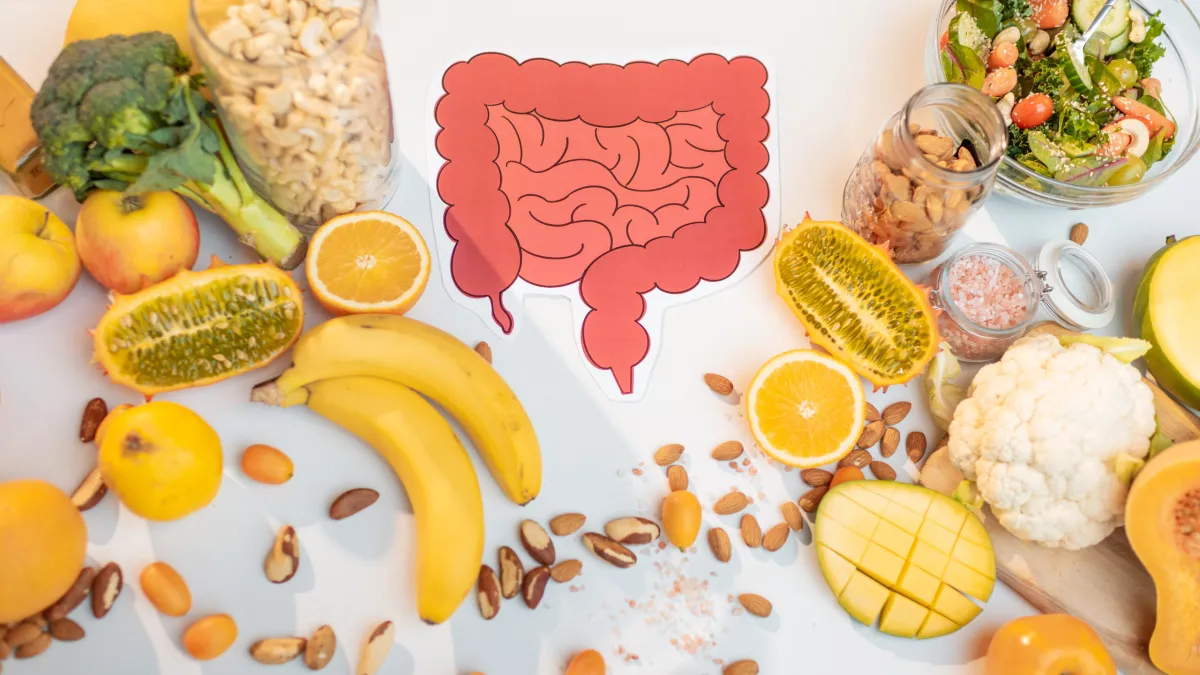
The Gut-Hormone Connection: A Guide for Women Over 40
Our bodies undergo significant changes as we age, particularly during perimenopause and menopause. For women over 40, understanding the intimate relationship between gut health and hormonal balance can be transformative. Let's explore how nurturing your gut microbiome can help manage hormonal shifts and improve overall wellbeing.
The Hidden Link Between Your Gut and Hormones
Your gut microbiome—the trillions of bacteria living in your digestive tract—plays a crucial role in regulating hormones. This "gut-hormone axis" becomes especially important during midlife transitions when estrogen, progesterone, and other hormone levels naturally fluctuate.
Research shows that beneficial gut bacteria help metabolize and regulate estrogen through what's called the "estrobolome"—the collection of bacteria capable of metabolizing estrogens. When your gut microbiome is imbalanced, it can lead to estrogen dominance or deficiency, exacerbating symptoms like hot flashes, mood swings, and weight gain.
Common Hormonal Challenges After 40
Many women experience these changes as they enter perimenopause and menopause:
Insulin resistance and metabolic changes
Thyroid hormone fluctuations
Cortisol imbalances from chronic stress
Declining estrogen and progesterone levels
What's fascinating is how closely these hormonal shifts connect to gut health. For instance, decreased estrogen can alter gut barrier function, while gut inflammation can disrupt hormone production and sensitivity.
Supporting Your Gut for Hormonal Balance
Here are practical strategies to nurture your gut-hormone connection:
Focus on fiber-rich foods. Aim for 25-35g daily from vegetables, fruits, legumes, and whole grains. Fiber feeds beneficial bacteria and helps eliminate excess hormones.
Include fermented foods. Yogurt, kefir, sauerkraut, and kimchi introduce beneficial bacteria directly into your digestive system.
Prioritize protein. Adequate protein supports hormone production and helps regulate blood sugar, which impacts both gut and hormonal health.
Manage stress mindfully. Chronic stress disrupts both gut and hormone function. Regular meditation, gentle movement, or simple breathing exercises can make a significant difference.
Consider targeted supplements. Speak with your healthcare provider about probiotics, omega-3 fatty acids, magnesium, and vitamin D—all of which can support both gut and hormonal health.
Beyond Diet: Lifestyle Factors
Sleep quality, exercise patterns, and environmental toxin exposure all influence both gut and hormonal health. Creating consistent sleep and exercise routines while minimizing exposure to endocrine-disrupting chemicals in plastics and personal care products can further support hormonal balance.
The Bottom Line
The gut-hormone connection represents an empowering approach to managing midlife changes. Rather than viewing hormonal shifts as something to endure, consider them an invitation to deepen your understanding of your body's interconnected systems.
By nurturing your gut health, you're creating a foundation for hormonal balance that can ease the transition through perimenopause and beyond, potentially reducing uncomfortable symptoms while supporting long-term health and vitality.
Remember that individual responses vary—what works for one woman may not work for another. Working with healthcare providers who understand the gut-hormone connection can help you develop a personalized approach to thriving during this significant life transition.
